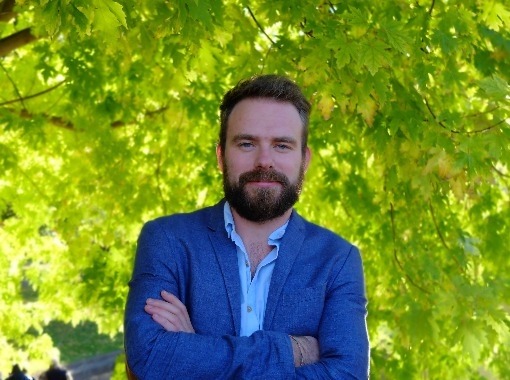Doctoral defence in Environment and Natural Resources -Claudiu Eduard Nedelciu

Aðalbygging
The Aula
Ph.D. student: Claudiu Eduard Nedelciu
Dissertation title: Global Phosphorus supply chain dynamics: Sustainability implications for the 21st century
Opponents: Dr. Birgit Kopainsky, Professor at Bergen University, Norway
Dr.Pål Börjesson, Professor at Lund University, Sweden
Advisor: Dr. Kristín Vala Ragnarsdóttir, Professor at the Faculty of Earth Sciences, University of Iceland
Doctoral committee:
Dr. Ingrid Stjernquist, Senior Lecturer, Stockholm University, Sweden
Dr.Harald Ulrik Sverdrup, Professor, Norway Inland University of Applied Sciences
Chair of Ceremony: Dr. Freysteinn Sigmundsson, Research Scientist at the Institute of Earth Sciences and the Head of the Faculty of Earth Sciences, University of Iceland
This is a joint doctoral degree between the University of Iceland and Stockholm University.
Abstract:
Phosphorus is an essential yet irreplaceable macronutrient for agriculture and thus plays a key role in global food security. Most of the phosphate fertilizers are produced from phosphate rock, a finite mineral resource that is mined and processed at great environmental and social costs. Nonetheless, the present-day phosphorus supply chain transforms this valuable resource also into a major pollutant of water bodies. The research that is presented in this thesis investigated the sustainability challenges of the currently linear phosphorus supply chain and discussed their implications. The main methods used were literature and case study review, semi-structured interviews with stakeholders from the phosphorus sector, stakeholder analysis, systems analysis and system dynamics modelling. Five key messages emerged from this project.
First, it is necessary to close the loop throughout the phosphorus supply chain instead of focusing only on end-of-pipeline solutions. Second, in terms of monitoring data, the global phosphorus supply chain is a black box. This poses serious challenges to designing robust policies in food security. Third, industrializing world regions where most of the population growth is expected to occur in the coming decades are increasingly vulnerable to phosphorus scarcity. Fourth, in a business-as-usual scenario, the global supply chain of phosphorus will produce significant amounts of toxic by-products, will have an increasingly negative impact on the climate and will deteriorate the quality of water bodies. Finally, implementing low-input sustainable farming systems, such as agroecology, was shown to have the potentially largest impact in reducing P requirement and in decreasing the negative socio-environmental impacts of the global P supply chain.
About the doctoral candidate:
Eduard, born 1989, was raised in Busteni, a small mountain town in the Transylvanian Alps of Romania. He obtained his BSc. degree in Geography from Coventry University, UK, in 2012 and his MSc degree in Environmental Sciences and Policy from the Central European University, Hungary, in 2014. Between 2012-2013 and 2014-2015 Eduard worked for CEEweb for Biodiversity, an umbrella NGO in Budapest carrying out projects on biodiversity protection in Central and Eastern Europe.
In 2016, he started his PhD project as part of the AdaptEconII research team. He is currently the Vicepresident of the ERASME Centre of Excellence in Sustainability in Clermont-Ferrand, where he is also carrying out research on system dynamics modelling and agroecology.
Claudiu Eduard Nedelciu



